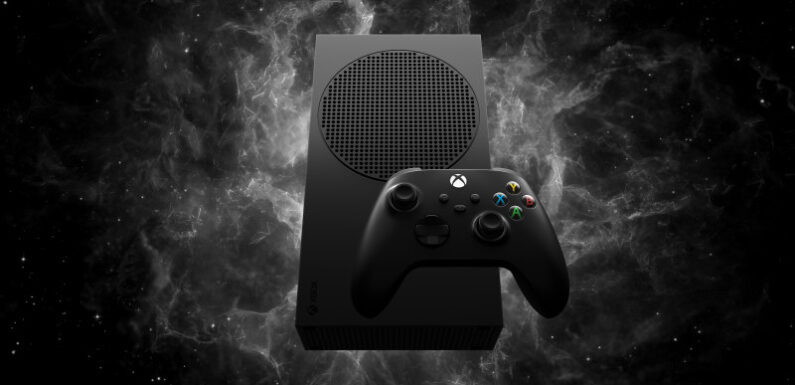
Save articles for later
Add articles to your saved list and come back to them any time.
As far as Xboxes and PlayStations go, the current generation of video game consoles began in November 2020. For a number of reasons the new machines have largely felt like unnecessary upgrades for much of that time, but that’s finally changed.
With major games like Final Fantasy XVI and Starfield only releasing on new consoles and not old, and with the bulk of this holiday’s big releases skipping the last-gen machines as well, many will be looking to upgrade. In fact, as Starfield released earlier this month, Amazon reported a more than 1000 per cent increase in people ordering the Xbox Series X, and it wouldn’t be surprising to see a similar bump for the PlayStation 5 alongside Spider-man 2 in October.
The Xbox Series X (left) with the new black 1TB Series S and the original white 512GB Series S.
While both those machines will set you back $800, Microsoft’s oft-overlooked less-expensive console might just be the best bang for your buck in joining the current gen. The cheaper and smaller Xbox Series S delivers the same gaming features as the Series X and plays all the same games, but its handful of compromises are important ones that originally turned off dedicated players – it had no disc drive, was less powerful, and had half the storage space.
This month Microsoft released a revision for the console that addresses one of those concerns, doubling the Series S’ advertised storage from 512GB to 1TB. I say advertised because in real life the old model only had 380GB of usable space, while the new model has more than 800GB. This makes it a very appealing option at $550.
On paper the Series S seems underpowered, with only a third of the graphical grunt of its larger sibling. But with the same processor on board and the same lightning-fast storage, the reality for most games is they run the same but at a lower resolution. If you don’t have a 4K TV you might not even notice. And you get the same vital next-gen features like Dolby Vision and Quick Resume (which lets you pick up where you left off instantly across multiple games), plus compatibility with all the same games from the very newest releases to 20-year-old classics, which now run better.
I’ve been playing a lot of Starfield on both Series X and Series S, and the differences are noticeable but not as severe as you might think. Performance is identical in terms of how smooth the game runs, loading times are the same, and since I have the X hooked up to a big 4K TV and the S to a smaller 1440p monitor the lowered resolution is negligible.
Side-by-side it’s obvious there’s less texture detail on the Series S, and you can’t see as far into the distance when you’re exploring a planet. If such things are important to you, you’ve probably already decided on a Series X. For most people, the Series S experience is great.
The lack of an optical drive will still be a non-starter for fans of physical games or Blu-ray movies, though the Series S does support streaming apps in 4K. Ideally, you could pair the console with an $11-per-month Game Pass subscription which gets you access to hundreds of digital games and should negate the need to dig through used games at the local store.
The biggest question mark going forward is whether game developers trying to push the envelope for performance will find themselves inhibited by the Series S.
Recently, the hit RPG Baldur’s Gate III stirred controversy by releasing on PS5 but skipping Xbox, with the developers Larian Studios citing issues with the Series S. However, this turned out to be specifically to do with the graphically demanding splitscreen multiplayer mode. After talking with Xbox, Larian decided the game will release later this year, just with no splitscreen on Series S.
If this is the kind of compromise to be expected, I still consider the new Series S to be a good choice for next-gen gaming on a budget.
Get news and reviews on technology, gadgets and gaming in our Technology newsletter every Friday. Sign up here.
Most Viewed in Technology
From our partners
Source: Read Full Article
